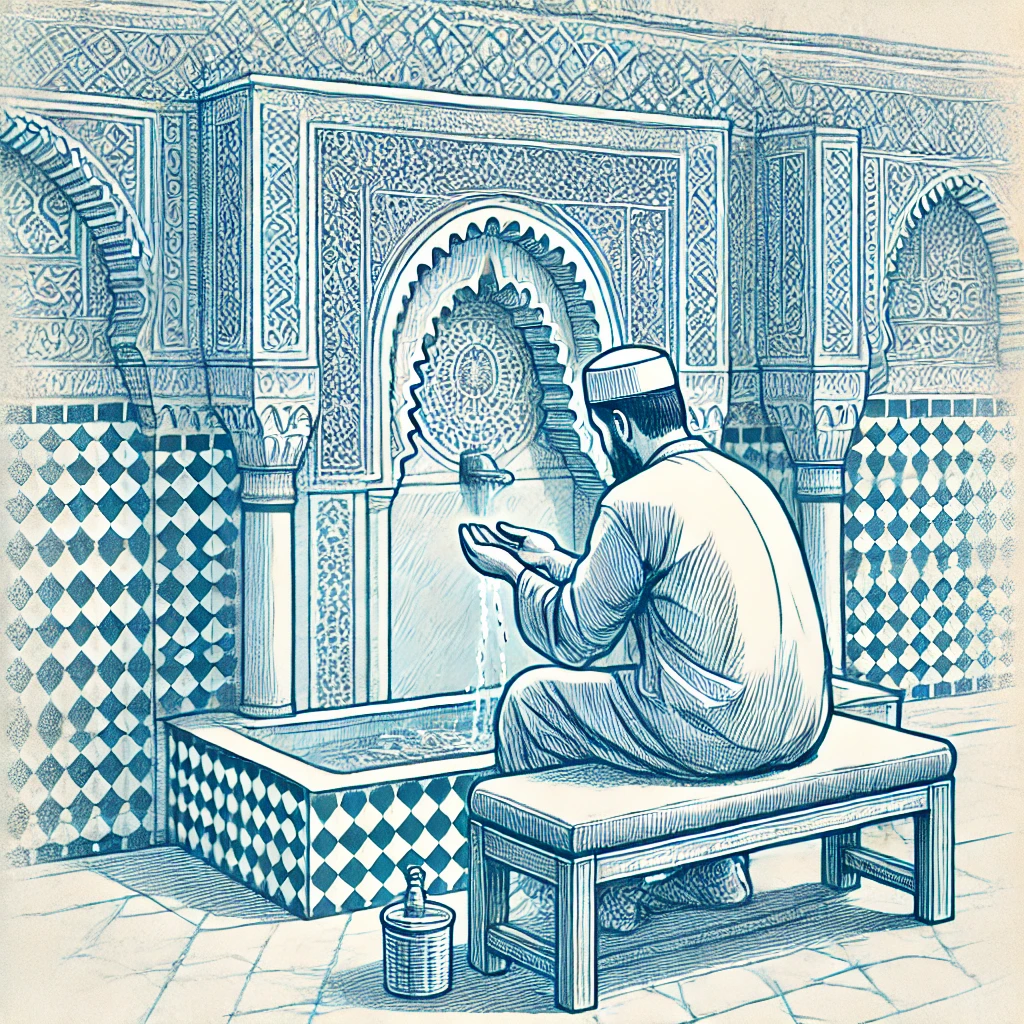Question: Does vomiting break wudu’ in Maliki fiqh?
﷽
Vomiting does not break wudu’ in Maliki Fiqh, but if it changed from the original food (i.e the vomit is different in taste, color, or smell than the original food he ate), then it is filth.
As Imam Khalil in his Mukhtasar mentions, the rulings on filth is that if it is on your body, clothes, or the place on the ground that your body will touch during prayer, then your prayer would be invalid.
However there are three common exceptions to this:
- Forgetfulness: If you forgot that there was filth on your body, clothes, or place, and you prayed the entire prayer, then remembered that there was filth on you, this is forgiven.
- Inability: If there was filth, but you do not have the ability to remove it- either by washing it off or changing into something clean- or if removing it will cause the prayer time to run out, then this is forgiven.
- Difficulty: If you are a mother or your occupation is like a nurse who constantly deals with vomit, and it is too difficult to clean it off, then it is forgiven as long as you made an effort to avoid it.
So vomit would not break your wudu’, but if the vomit was filthy and it got on your body, then the aforementioned rules would apply.
And Allah knows best.
Written by Uthman Qureshi
Sources: Mukhtasar Khalil
هل إزالة النجاسة عن ثوب مصل ولو طرف عمامته وبدنه ومكانه لا طرف حصيره سنة أو واجبة إن ذكر وقدر وإلا أعاد الظهرين للاصفرار؟ خلاف٢ وسقوطها في صلاة مبطل كذكرها فيها لا قبلها أو كانت أسفل نعل فخلعها وعفي عما يعسر كحدث مستنكح وَبَلَلِ بَاسُورٍ فِي يَدٍ إنْ كَثُرَ الرَّدُّ أو ثوب وثوب مرضعة تجتهد وندب لها ثوب للصلاة
لَا بِمَسِّ دُبُرٍ أَوْ أُنْثَيَيْنِ أَوْ فَرْجِ صغيرة وقيء وأكل لحم جزور وذبح وحجامة وصد وَقَهْقَهَةٍ بِصَلَاةٍ وَمَسِّ امْرَأَةٍ فَرْجَهَا وَأُوِّلَتْ أَيْضًا بعدم الإلطاف
Al-Sharh Al-Kabir:
(وَ) مِنْ الطُّهْرِ (قَيْءٌ) وَهُوَ الْخَارِجُ مِنْ الطَّعَامِ بَعْدَ اسْتِقْرَارِهِ فِي الْمَعِدَةِ (إلَّا الْمُتَغَيِّرُ) مِنْهُ بِنَفْسِهِ (عَنْ) حَالَةِ (الطَّعَامِ) فَنَجِسٌ
(وَمَنْ) (ذَرَعَهُ) أَيْ غَلَبَهُ وَسَبَقَهُ (قَيْءٌ) طَاهِرٌ يَسِيرٌ وَلَمْ يَزْدَرِدْ مِنْهُ شَيْئًا (لَمْ تَبْطُلْ صَلَاتُهُ) فَإِنْ كَانَ نَجِسًا أَوْ كَثِيرًا أَوْ ازْدَرَدَ مِنْهُ شَيْئًا عَمْدًا لَا نِسْيَانًا بَطَلَتْ وَكَذَا غَلَبَةً عَلَى أَحَدِ الْقَوْلَيْنِ وَالْقَلْسُ كَالْقَيْءِ وَيَسْجُدُ لِلنِّسْيَانِ بَعْدَ السَّلَامِ
